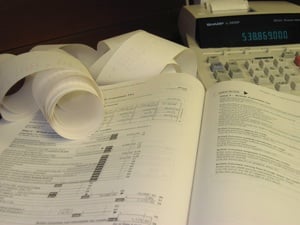The Wall Street giant wants a $1.4B tax refund from the bank it rescued. The regulator says TARP recipients aren't entitled to such refunds
Federal regulators are opposing a proposed $1.4 billion tax refund for JPMorgan Chase & Co.
The tax benefit has become an issue a year and a half after the Wall Street titan galloped in to buy the assets of Washington Mutual Inc. when it collapsed under bad mortgage loans and became the biggest bank ever to fail in the U.S.
The Federal Deposit Insurance Corp. seized Seattle-based Washington Mutual and sold its bank assets to JPMorgan for $1.9 billion.
JPMorgan has been involved in the bankruptcy reorganization proceeding for Washington Mutual's holding company, and had reached a compromise earlier this month with the FDIC.
Under that accord, JPMorgan agreed to turn over about $4 billion in disputed WaMu deposit accounts to Washington Mutual in return for a portion of the tax refunds expected from the fallen bank's prior operating losses.
JPMorgan would get the right to the $1.4 billion and creditors of the WaMu holding company would get the most of the remaining $2.7 billion refund.
Under economic stimulus legislation enacted late last year, money-losing companies — in this case WaMu — can use their losses to get refunds of taxes paid in the previous five years. That was an expansion from the previous two-year allowance for calculating refunds.
But the stimulus bill also bars any companies that received federal bailout aid — like JPMorgan — from collecting the tax refunds. New York-based JPMorgan, the No. 2 U.S. bank by assets behind Bank of America Corp., got $25 billion under the financial rescue program, which it has repaid to the government.
A bankruptcy reorganization plan filed Friday by Washington Mutual for approval by a federal judge in Delaware affirms that JPMorgan has a right to the $1.4 billion. The FDIC disagrees.
"The FDIC is working with all parties involved to reach agreement with respect to all terms of the proposed settlement," the agency said in a statement Monday. The plan and other documents submitted Friday "do not reflect the continuing discussions among the parties," it said.
A JPMorgan spokesman, who declined to be identified by name, said "We are in meaningful discussions with the relevant parties." He declined further comment.
The conflict was first reported Monday by The Wall Street Journal.







